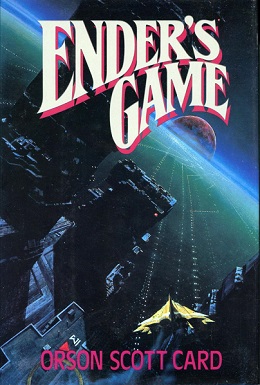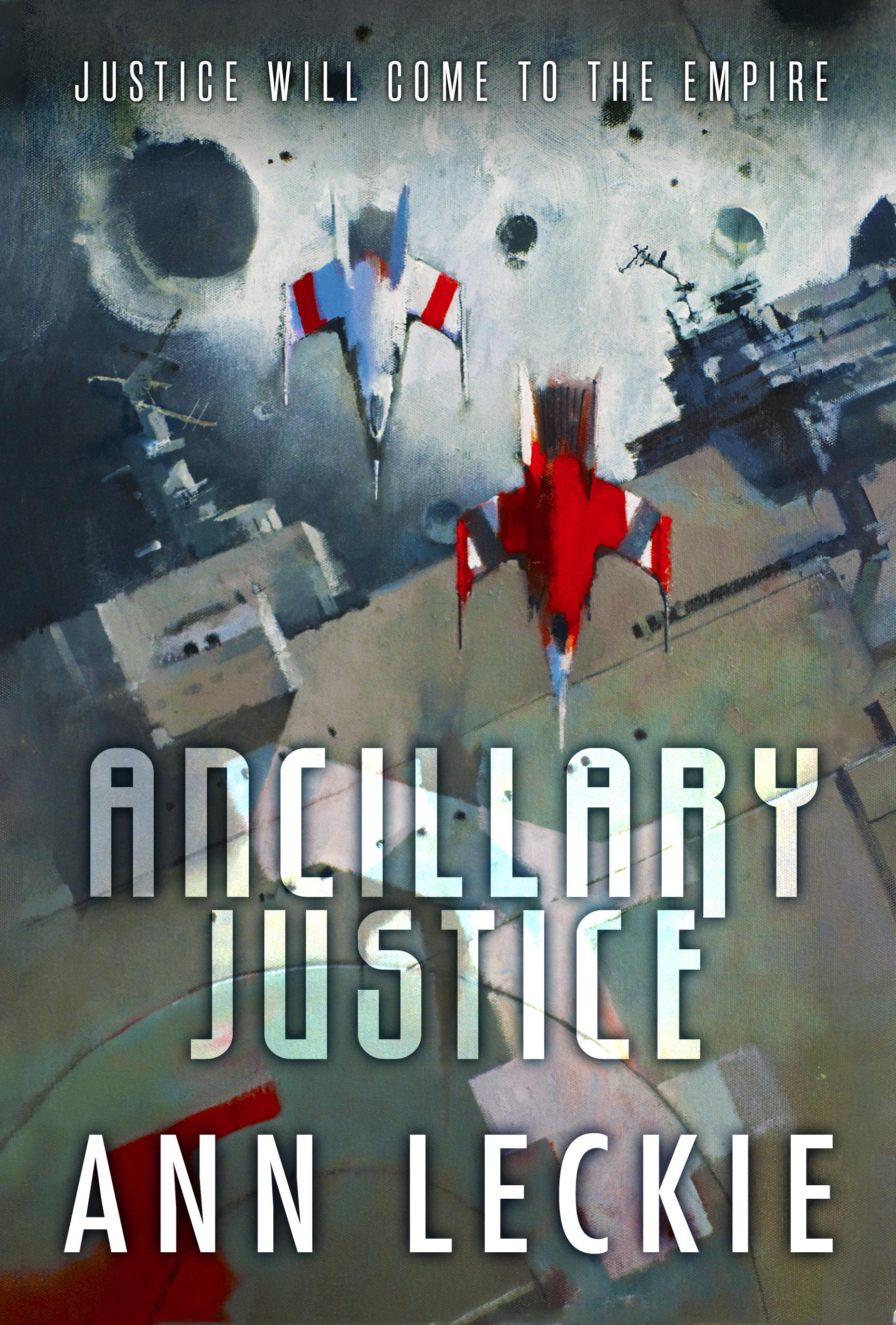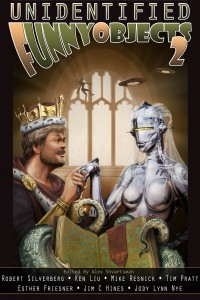written by Frank Dutkiewicz
 Welcome to my yearly review of the Writers of the Future anthology. This marks my sixth review of the contest. An explanation on my approach to reviewing this anthology I provided in my review of WotF 28. WotF 29 marks a change in tenure of Coordinating judge. Dave Wolverton (a.k.a Dave Farland) , gold award winner of contest #3 and bestselling author of the Runelords series, takes over for the departed Kathy Wentworth. With the exception of a portion of the first quarter, all the entries from last year went across Dave’s desk. Many writers had studied and pondered on what it took to impress the late Ms Wentworth. The abrupt change in first reader sent shockwaves through the forums populated by writers hoping to crack into the anthology. The big question was ‘would the standards change’ for winning the contest. If the winners are indication, my answer would be a soft yes, but by all means, judge for yourself†�
Welcome to my yearly review of the Writers of the Future anthology. This marks my sixth review of the contest. An explanation on my approach to reviewing this anthology I provided in my review of WotF 28. WotF 29 marks a change in tenure of Coordinating judge. Dave Wolverton (a.k.a Dave Farland) , gold award winner of contest #3 and bestselling author of the Runelords series, takes over for the departed Kathy Wentworth. With the exception of a portion of the first quarter, all the entries from last year went across Dave’s desk. Many writers had studied and pondered on what it took to impress the late Ms Wentworth. The abrupt change in first reader sent shockwaves through the forums populated by writers hoping to crack into the anthology. The big question was ‘would the standards change’ for winning the contest. If the winners are indication, my answer would be a soft yes, but by all means, judge for yourself†�
“War Hero” by Brian Trent second place, fourth quarter
Harris Pope is the hero of the resistance. The only one to successfully infiltrate the enemy, he destroyed the Partisan’s Phobos base and won the war to free Mars. Feigning loyalty to the isolationist’s cruelest commander , Corporal Peznowski , he is eager to put his past behind him. A simple saving of his conscious and he will begin his post war life , it is the last thing he remembers when he awakes forty years in the future in a new body.
“War Hero” is set in a future where death can be a new beginning. Memories of who you were are downloaded and can be uploaded later in a fresh body. What had seemed like a war that was almost over for Harris, turned to hell for Mars when a Partisan last resort protocol nuked the red planet’s surface. The resistance has learned Peznowski has returned and lives in the body of mid-level official. Harris’s conscious has been loaded into his nineteen-year old son, Peter , the victim of an accident. Harris’s mission is to kill his ‘father’ and learn what he can of Peznowski plans, but the sadistic Partisan commander has doubled his chances of success, downloading his mind into a second person he can trust. As horrifying as it is for Harris to learn his most bitter enemy is now his father, he discovers that the same man’s mind is also in the head of his mother as well.
“War Hero” is a futuristic sci-fi war story , not unlike the fast action tales woven by the likes of Dickerson, Drake, and Pournelle. I got the impression that the two sides had no qualms about total annihilation for all over defeat, a complication amplified when downloading a conscious can resurrect friends and enemies. The twist of one man becoming two and mating with himself was , I’m not sure how to identify that type of creepiness , and unique. It made the second half intriguing and a delight to read. Not as gripping was the interview opening with a bookish type of technician , I found the Shane character needlessly wooden and was glad he wasn’t in the second half of the story. Although I found the premise, protagonist, and antagonist worth the price of admission, the solution to the protagonist’s dilemma was nothing more than a cheat; an out-of-the-blue convenient rescue early short cliff hanger films would spring on their audience. No hint it was coming, nor an indication that the hero set it up from before.
“War Hero” makes for a good opening for a speculative anthology–quick and smart. It also strikes a tone that is different from past editions: darker, more intrigue, but with no promises that the ending will be a happy one.
Grade B+
“Planetary Scouts” by Stephen Sottong third place, first quarter
The scouts need a few brave (and naÃ�’ �ve) men and women, and Aidan Pastor is one of the best. At nineteen missions, he has survived five partners and is six missions away from retirement. Lester, fresh out of the academy, is his newest partner. He has a ten percent chance of surviving his first mission, but Aidan doesn’t plan on losing another partner and isn’t above teaching Lester some hard lessons so he can learn about survival quickly. The galaxy is a mean place. Humanity needs fresh worlds and it’s up to the scouts to find them, regardless the cost.
Stephen Sottong is an author who grew up reading the old Cold War science fiction masters of the 50’s and 60’s. “Planetary Scouts” honors those old action classics. The story is set up like many old cop movies where the wise veteran is saddled with an eager rookie. Aidan instills in Lester that idealistic notions – like sparing all intelligent life – is the best way to get killed. The galaxy is filled with life , hostile, aggressive, and territorial. It is the scout’s job to find out which worlds out there harbor intelligent life. Those that aren’t are sterilized for human occupancy.
“Planetary Scouts”‘ main protagonist is a hard man whose amusing but harsh tactics of training reminds me of a couple John Wayne and Clint Eastwood characters they brought to life. The worlds the pair land on are full of crafty and murderous lifeforms. The author deserves high praise for coming up with a round variety of hostile, yet original, natives. The story is one of the longest of the anthology but it read short to me. It is an idea that could , and should , be lengthen to a novel, with room for many sequels afterward. The humans of this future are narrowly pragmatic; the scorch and raze solution for colonization would horrify the progressive of our today. Life, as it seems, does not mix well with extraterrestrial newcomers. If you want to colonize a new world, you best exterminate the natives.
“Planetary Scouts” is so much like the stories I would find in the book stores of decades ago: adventurous humans taking on a mean galaxy not unlike the old explorers that braved the west of two centuries before. I found the tale gripping, exciting, and a complete delight to read. The character’s lives are filled with struggle, but most of that turmoil is of an outward variety. The inner turmoil past anthologies practically demanded, is only superficially present here. The ending to this piece is less than a happy one. That may disappoint some, but not me. Personal growth of fictional people matter less than riding shotgun in a wild ride like this story gave me.
Grade A
“Twelve Seconds” by Tina Gower first place, first quarter, Gold Award winner
Howard works for the police department. It is his job to process memory siphons; the image of the last moments a person sees before their death. Sera Turner’s siphon is off. It is only nine seconds and is missing something Howard has never failed to see in one before: the halo marking the end of life.
“Twelve Seconds”‘ protagonist is an autistic man. He wears special goggles to filter out the overload of sensory input, and help him to decipher the proper social protocols he often misses. The absence of a halo bothers him. Most view the halo image as proof that an afterlife exists: the light marking the opening to heaven. Howard’s investigation uncovers other siphons who failed to show a halo as well. Howard’s colleagues become impatient with him as he digs for answers. Ava tells him to look for a common thread. His simple mind has a hard time figuring out what is common, but he eventually stumbles on what others have missed , and his friend may be in danger when he does.
Ms Gower braved a risky tactic when she chose to write a first person perspective through the eyes of a mentally disabled protagonist. Howard is a functional handicap, made partly possible with the same technology created by the two doctors that made siphons possible. Howard is a man who has a hard time interacting with others. His co-workers all have socially disabling issues as well, but Howard appears to be the one having the hardest time fitting in among his colleagues. His desire to be more than what he is motivates him. He has dreams of becoming a real officer, often imagining that his closest colleague, Eddie , a policeman who lost his wife , as his partner and fellow detective. He is told to forget about the halo but the more he digs the more reports he uncovers of similar siphons.
“Twelve Seconds” is a different type of mystery. Howard takes on the role of a detective but unlike all the other mysteries I read before, he is successfully written as one not as bright. His inability to absorb the overload of sensory input in this futuristic society helps him to maintain a laser like focus on what is wrong with the vision of the last moments of Sera Turner’s life. The trail leads him to a cover up, and to a source brighter detectives may have overlooked. It easy to see why the judges chose this story as their Gold Award winner: it is different, brave, and with a protagonist you can’t help but to pull for. As much as I loved the idea of the memory siphons, and admire Ms Gower’s ability to write a convincing mentally handicapped protagonist, I wasn’t satisfied with the way the story rolled out.
The first half of the tale I thought was dynamite: good mystery, intriguing technology, and a likeable protagonist. The problem I had with it was the conclusion. The mystery on why the halos were absent from the victims was never explained to my liking. I also didn’t understand the antagonist’s motivation for their crime. Why was a cover up even necessary? Nevertheless, I found the tale very worthy for inclusion into the anthology. Nice work.
Grade B
“The Grande Complication” by Christopher Reynaga first place, fourth quarter
Nine-year old Neil’s world comes to a stop when he is about to board the train taking him to the orphanage. His handler isn’t nice and he wants to go home, but all his problems come to a halt when time stops around him. The only things that still move are himself and an old man who claims to be the caretaker of the World Clock. Time is breaking down, and it is up to the old man to fix it. He needs an apprentice, and Neil is the only person for the job.
“The Grande Complication” is a story that reminds me of the Twilight Zone episode title “A Kind of Stopwatch”. The world has frozen into place. Only Neil and the mysterious old man can move in it. The old man takes Neil into the realm of the World Clock through a seam in reality. The clock is home to things that have fallen out of time. Some, like Jack the Pigeon, were living beings but now exist in a metal-like shell. The clock is broken, and has been falling apart for some time. Chronaphage’s , small metallic locusts , have been chewing away at the clock. The clock caretaker is old and does not have long for this world. He must teach Neil how to repair the clock but Neil has never been good at putting things back together , only at taking them apart.
“The Grande Complication” has an opening with a sudden start. We are immediately thrown into his world and quickly become familiar with the problem he faces. The introduction to Neil trying to escape the clutches of the woman trying to send him away made for an excellent hook. Like the previous tale, I fell for this story right away. I became intrigued with the dilemma young Neil faced. But also like the previous tale, the conclusion left me unsatisfied. So not to spoil the outcome, I won’t reveal the ending scene that baffled me.
I rather liked how this story unraveled and adored the writing. However, I became confused with the shifting events and with a solution that seemed more like an accident that worked out for the protagonist.
Grade B
“Cop For A Day” by Chrome Oxide published finalist
Mark Rollins, convicted felon, has been selected for law enforcement detail for the day. He is given all the equipment they can spare for him to perform his duty , bullet proof vest, an AI disabled car, weapons , and is told if he collects a half-a-million dollars he can keep the job. A resourceful man like him just might have a chance to succeed, but then again, when it comes to the government, the rules keep changing to stack the deck against him.
The setting and premise for “Cop For A Day” is a libertarian’s worse nightmare. The government is nothing but semi-organized thuggery. Taxes are collected by theft. Any attempt to conduct an honest business is seen as capitalistic shenanigans that must be dealt with by with heavy-handed authoritative methods. The crime Mark was convicted of was conducting a black market repair service. His business was fair, and he was good at it, which made him a competitive danger and an avoider of taxes for not turning in all his profits for government confiscation. Mark is given a car that is barely functional. He is able to repair the vehicle’s AI brain thus making his job easier. The trick to being a good cop is taking advantage of crimes in progress so he can seize any evidence for the greater good. With the help of his car, he is able to interrupt a very big crime in progress.
The premise of “Cop” is one that teeters on edge of seriousness. The background characters have been dumbed down to a common denominator so low it defies belief. The community Mark lives in makes the most depressing and crime-ridden city of today seem like a paradise getaway in comparison. The government departments have colorful acronyms , which lends to a light-hearted tone, at the expense of the serious nature of the piece. The car (nicknamed EDGE by Mark) has a cold personality that makes moral judgments, reminding me of a mothballed KIT (of Knightrider fame) brought out of retirement.
Despite an abundance of cartoonish characters, “Cop For A Day” has a decent foundation for a science fiction tale seeking to achieve a futuristic moral premise. Mark is written effectively as a hero existing within the cracks of an oppressive society; a believable anti-hero hero. I can imagine a few of my progressive leaning friends disliking the message of this piece , government, left unchecked, is a government destined for corruption. I can see why this right-leaning tale of dystopia would fail to crack the top three, but I am one that is glad it made the pages of the anthology. I found it amusing and can imagine further adventures involving Mark and his EDGE.
Grade B+
“Gonna Reach Out and Grab Ya” by Eric Cline second place, second quarter
Dr Molly Boyle is left alone in the corner office when the sheriff delivers a naked John Doe for her to examine. Her colleagues have been called into Fort Benteen to deal with a quarantine event emergency. The dead man was found outside the military base. He is young, has three unique tattoos, and a clenched fist. His tattoos are remarkable. A woman depicted on his chest is done so well it almost looks like a photo. Molly wonders if they may hold a clue to his identity, but the mystery only deepens when she breaks protocol and touches the tattoo with her bare finger. The woman in ink moves under her touch.
“Gonna Reach Out” has a premise fitting an old Twilight Zone episode. Molly is a woman filled with anxiety. Her desire to become a doctor has left her in debt, overworked, and depressed. She is drawn as a lonely woman riding on the edge of a mental breakdown. John Doe is a handsome cadaver full of mystery. The dead man has tattoos that replay like short film clips when they are touched. His hand proves to have a life of its own, grasping at anything close enough to grab. It becomes clear to Molly that the man is part of something secret and big from the base. She is certain that the military will suppress anything Molly discovers, and the hasty , but lame , cover story only confirms her suspicion.
One way to describe “Gonna Reach Out” is as a Roswell cover up from another time. I found the mysterious John Doe as intriguing as Molly did. The setting for this story was ripe for a horror premise but the author chose a direction a little less scary. The presentation, protagonist, and overall premise I found very appealing and kept me glued to this story throughout , well done. Not as intriguing was Molly’s backstory. I found them to be mildly distractive. I also thought the protagonist solved the mystery a little too easily. Her conclusions were, in my opinion, a lucky guess.
“Gonna Reach Out and Grab Ya” is a story I wished would have been longer, invested less in the protagonist’s mental state, and been a bit creepier. Nevertheless, the tale is a good one. The premise reads peripherally familiar, but is unique enough to qualify as an original work of speculative fiction. In short: I liked it, but wished it had more.
Grade B-
“Vestigial Girl” by Alex Wilson third place, third quarter
Charlene is a genius. She is four years old, has the physical development of a pre-toddler, is the biological product of same-sex fathers, and is plagued by a monster. The monster is clever. It is wrapped around her voice box, inhibiting her ability to communicate with her fathers. CAT scans have failed to detect it, but Charlene has seen it with the help of a mirror she has constructed from bits and pieces around her home. Charlene knows the monster is against her, but she has a plan to free herself from its clutches. She has but one chance. It is now or never.
“Vestigial Girl” is a prison escape tale. Little Charlene’s prison is the underdeveloped body she is locked in and her jailer is the monster constricting her voice box. There are other children like her. Charlene briefly met such a girl capable of communicating the only way she could , through whistles. Her parents believe she is mentally and physically handicapped: her Daddy Oliver believing the science that merged his and Gary’s cells as being responsible for her condition. Charlene is more sophisticated than any child , and most adults , have ever been. Her plan is to conduct surgery on herself. The gambit is all or nothing. She knows that if she fails, the monster will have won, or will kill her for trying.
Alex Wilson is a name I was surprised to see in this anthology. I’ve seen his work in other places before, enough to make me believe that he was already a veteran professional writer. “Vestigial Girl” is an indication that he is indeed a seasoned speculative author. The backdrop of this story is of a same sex couple arguing in the next room. Charlene has heard it before and has become bright enough to know what the meaning in the tone and inflections in their voices really mean. The monster in her throat has her locked in a baby’s body. What its origins are is never explored in this tale but it may be responsible for Charlene’s underdeveloped condition. Other than possessing a mind Einstein would have been envious of, the one thing that Charlene has going for her is a glacial level of patience to cope with her fumbling digits. The tale is gripping as we follow along with her battle to defeat her monster, knowing her well-meaning parents can bring it all to an end if they check on her at an inappropriate moment.
Although I enjoyed the struggle of the patient and brilliant protagonist, the back drop of arguing couples took me a bit out of tale. Not only did I find it mildly distractive(parents who argue so loudly about a child, are irresponsible in their own right), but the nature and tone of a same-sex male couple, came off as clichÃ�’ �. Do all gay men fight like diva self-centered women? I would like to think not. It sounded as if they were attempting to one up each other in self-pity. That aside, the tale made for a wonderful slice in a greater drama. I would have liked to know more of the monster and why it chose children like Charlene to torment. Was it a conspiratorial attack? I would like to have known. Perhaps that may be told in another tale.
Grade B
“Holy Days” by Kodiak Julian third place, second quarter
The days of remembrance fill our lives. Four magical days mark what we once were, what we have lost, and what we would sooner forget. Evie is expecting her first child. It is her second pregnancy. For her bright and full-of-life but sick sister, Rosie, these days is a chance to step away from her chemotherapy. Her husband, James, tries to use the days to reconnect with his wife. The days are opportunities to get closer with family and loved ones but they instead expose the wounds we had allowed to callus over with time. Scabs that are exposed are scabs we can’t help but pick.
The “Holy Days” in Ms Julian’s story are miracle days. There is a day where our aliments leave us, a day where we return to a happier state, a day where the secrets we hold are revealed to those who share their common sin, and a day in which are departed loved ones come back. The protagonist in this tale is about to give birth to her daughter. The days are bitter sweet ones for her, as they are for others she is close to. Instead of appreciating re-experiencing the things and people she has lost, a forebearing regret fills her as it becomes apparent the people that are close to her will be leaving her soon.
I confess, the days in “Holy Days” would be ones most of us would embrace. Wouldn’t it be great if the arthritis and sickness that plagued us took a day off? And wouldn’t it be nice if you could spend one day with the parent you lost again? How about a day as the innocent and precise child your mother remembered you to be? Instead of looking forward to them, the protagonist in this tale treats the days like family get-togethers; days that force the ill feelings you’d rather not remember to the surface. The events that should have been looked upon as a gift from above, instead they make the reader feel dirty from the emotive residual that came with the package.
Although I liked the premise of “Holy Days” I found the subplots that dotted the story distractive. One sidetrack to the piece told of a relative of Evie’s husbands, a child that died at a young age. The sidebar was long and barely related to Evie’s dilemma. I was surprised it survived the authors final cut. The subplots and depressing tone of the tale, I admit, affected my final analysis of this piece. A few years back I would have likely given “Holy Days” a higher grade, but the quality of the writing and the appeal of the stories has raised the stakes of what I consider a good tale for WotF these days. Although I had no qualms with Ms Julian’s skill as a writer, or of her ability to tell an intriguing tale, the story was one of my least favorites.
Grade C+
“The Ghost Wife of Arlington” by Marilyn Guttridge second place, third quarter
Vivian is Arlington’s Shade. She serves as the town’s ambassador to their immortal; a much feared supernatural being she has named the Shaker. She is a divorced outsider who stumbled onto the immortal’s doorstep in the middle of the night. The town folk are frightened of her but are grateful she took a role one of the locals would have had to fill. Shaker is unlike other immortals Vivian has known. He acts more a like an aloof Lord to the people of Arlington than a mischievous deity that toys with mortals. Serving as Shaker’s Shade gave Vivian a purpose in life when she needed it the most. Assuming the role of Death’s companion is not a job most mortals would want. She never expected to fall in love with a man with no heart, nor had she ever thought she would crave having a child with him.
If I were to choose the author who would be most likely to succeed as a bestselling author in this anthology, my vote would have gone to Marilyn Guttridge. This very young winner has an intuitive talent of capturing the attention of a reader. The opening scene to “The Ghost Wife” unravels like the first chapter of a fantasy romance novel. Vivian is shown as a woman with a very unusual job, a servant to a powerful being that is treated like an equal by her master. Shaker is a distant ruler. Mortals confound him but being the only immortal around leaves him lonely. His home is filled with ghostly things called ‘Shadows’ , shy and elusive around Vivian. Shaker is a being that mimics the shell of a human. He can change his form at will but can’t maintain a consistent skin temperature. His touch is usually ice cold but he can burn like a hot stove if he chooses. He works hard with his relationship with Vivian, a difficult task when you have no idea what it is like to be alive.
“The Ghost Wife” is Beauty and the Beast retold. Shaker’s beast is of a being that is alien to the concept of what it is to be human. Try as he might, he can never really be like a man, but his efforts in trying for Vivian’s benefit make him more of a man for a woman who lived with an unkind husband for years. The first half of this tale is warm. You can feel Vivian’s sympathy for a man who is feared by the town he watches over. He is the bringer of death, escorting the souls of the departed to his street until they are ready to move on. When Vivian asks for a child, Shaker becomes angry. Children he sires cannot be alive, eventually becoming the Shadows that hide in his home. The warm opening scene of the first half of the “The Ghost Wife” gives way to a tale that reads like an epilogue. I found the proceeding story to be rushed , as if the author crammed the remaining chapters of her novel to fit into a short story. As a result, the tale lost some of its luster and warmth that captured me at the opening. The last ten percent of the tale where a new, and important, character is introduced, devolves the story into a footnote status , an explanation of what happened to Vivian in the end. It was so distant I came to not care of the character who burst onto the scene.
“The Ghost Wife of Arlington” is a tale written with two dynamic players. I cared about them and I could see many readers falling in love with them. Of all the stories in this anthology, this tale fits in to what I imagine the late Kathy Wentworth searched for: character led tales of speculation. I can’t remember a tale in all the years of the contest where the story would have been better served as novel, if only to see the characters evolve to their full potential. Perhaps Ms Guttridge will one day rework it and create one for Vivian and Shaker.
Grade B+
“Everything You Have Seen” by Alisa Alering first place, second quarter
Min-Hee is a young Korean girl caught in the middle of a war. She hides from the shells bursting overhead, hunts down the chickens that have fled the coop, and avoids her cruel brother. Her family is in shambles. Her father has gone to war and left her mother to care for a baby, Min-Hee, and Chung-hee , Min-hee’s older brother. Min-hee discovers a strange boy hiding in the chicken coop and names him Turtle. Turtle wears strange clothes, speaks a foreign language, and can summon food at will. The strange boy is unlike any person Min-hee had met and represents something she had little of before; hope.
“Everything You Have Seen” is a tale told from the frontline of the Korean War. Min-Hee and her family are villagers who have the misfortune of living where the armies have stood to fight. Chung-hee has joined a gang of boys. Their mother has lost control of the family. Turtle is a refuge but Min-hee cannot fathom from whence he came, or if he truly exists. He is lost, but what he is lost from is a mystery. Helping Turtle be found will help Min-hee find herself.
My description of Ms Alering’s story is imprecise. The tale had two themes; the destructive nature of war on a family’s structure and the fantasy element of a lost and magical boy. Turtle, scared and lonely, offers Min-hee a glimpse of a better life. His vision of peace and serenity are a sharp contrast to Chung-hee’s descent into savagery and barbarism. It becomes clear to Min-hee that accepting current events as they are will not serve Min-hee, her mother, and infant brother.
I found Ms Alering’s winning entry tough to follow. For example, I assume her story was set in the Korean War of the fifties from my own knowledge of history, but truth be told I could be wrong. Turtle was more of mystery to me. What he really was I could only make an educated guess. His exit from the story left me unsatisfied and was set way before the end of the tale. Far more intriguing to me was Chung-hee and his choice to attach himself to a marauding band of thugs – deciding his own family were nothing but exploitable items to barter and control. A fascinating subplot. I found her tale interesting but I failed to find solid ground with her premise.
Grade B-
“Scavengers” by Shannon Peavey third place, fourth quarter
Mara is a girl with poor sight. Her sister, Keera, serves as the guard for Goldwater , a job that was meant for her. The Lady and her metallic finches warn Mara when a Harvester – dangerous men from outside Goldwater – approaches. It is up to Keera, Mara, and Keera’s husband, Rey, to shoot the Harvesters before they can harm the village. Keera and Rey’s sharp shooting has never let the town down, but when the latest intruders fail to hold scythes suspicion brings to creep into Mara’s mind.
“Scavengers” is set in an isolated town. Goldwater is watched over by the Lady , a woman who is half vulture. Mara was chosen in her youth to be the guard for the town but an illness that struck her sight barred her from the job. The Lady has cared for Mara and has been working to improve her vision. She cares deeply for the town, and for Mara. The trio has the task of assassinating any scythe-carrying men who dare enter their area. Their latest kill are two men who proved to not be holding scythes. Keera decides she must find out the truth and leaves Goldwater. Mara and Rey are left to defend the town, and when another Harvester arrives, Mara suspects the worst when the dangerous man is found riding the same horse Keera rode out on.
“Scavengers” is a tale very much like recent winners from Ms Wentworth’s watch; character-building struggle set in an unusual speculative element. Mara is a woman racked with guilt. Guarding the town became Keera’s by default when Mara’s deteriorating eyesight prohibited her from assuming responsibility. The uneasiness Mara feels toward the Lady is apparent from the start. Although she is grateful to the vulture woman for treating her sight, she can’t help but wonder why the self-appointed guardian would care so much for the town, setting up a mystery that was very thin from the start. The tone of the piece was quite solemn, in my opinion. Regret, guilt, and suspicion bleeds from the story, leaving this reader feeling a little icky. The story was well-written, with an intriguing premise, and stocked with interesting characters, but if you’re looking for an uplifting tale you better come back to this later.
Grade B
“Dreameater” by Andrea Stewart first place, third quarter
Alexis and her mother, Linda, are drifters. They travel the southwest in a car without air conditioning. Linda earns a living stopping at motels to meet strange men. The men aren’t usually kind, but they lose their mind when Linda lets down her hair. Eventually, Linda will take their mind for good.
“Dreameater” is a horror story in the narrowest of terms. Alexis lives a life no teenager should experience, a daughter of a prostitute without a home. Complicating Alexis’s predicament is her mother’s temper. Linda would never hurt Alexis but she can be deadly to others. Dumping bodies of Linda’s clients is a common practice the pair has endured. Alexis has lived with this horror but when the police stake out the hotel room where met her latest client, the scene Alexis witnesses is worse than she could have ever imagined. Life for Alexis takes a turn she never expected. Child services have found her father, and he hints at a grim future for Alexis.
If there is one story that would mark the difference between a Wentworth edited anthology and this one, this would be the piece. “Dreameater” is the darkest tale I can ever remember reading for the contest. Alexis’s father is a ‘dreamcatcher’, a man who can shape the dreams of people. Linda is a ‘dreameater’, a person who consumes them. She is a monster who will eventually consume all a person has to offer until she feasts on their brains to satisfy her insatiable hunger. It doesn’t take long for Alexis to realize that no jail will hold her mother, and she knows Linda will come for her when she escapes.
I am a fan of dark tales. “Dreameater” has a premise fit for a Stephen King novel. Alexis is dealt a bad hand in life, leaving a wealth of sympathy for the reader to grasp onto. The opening pages left me wondering about Linda, not sure if she was a desperate woman doing what she can to provide for her child or an irresponsible parent of the worse kind. I found the set up for this horror to be enticing , a good ambush to spring on an unsuspecting reader. While I adored the premise to this piece, the narration is one that didn’t grab me. Ms Stewart stayed true to telling the story from a teenage girl who has neglected an education while traveling from town-to-town living in a car. Her first person account was done with a girl subtle in a solitary life absent a sound social setting , making for a simpler dialog and narrative. This approach made the tale less appealing to me, I confess. Nevertheless, the story was original and worthy its first place finish.
Grade B-
“Master Belladino’s Mask” by Marina J. Lostetter second place, first quarter
Melaine seeks a miracle. Her mother has been wasting away from disease. Only one man can cure her but he is dead. Fortunately, a mask of his likeness still exists. Melaine has gathered all the bottled time in her possession and hopes to don the mask and create the cure as Master Belladino. But renting the mask will cost more than she has, and there is a danger. To wear a mask is to assume their personality, and sometimes the will trapped inside the mask can be greater than the wearers.
“Master Belladino’s Mask” is layered tale. A number of subplot twists leant to this gripping premise. The story revolves around two and half characters (more on the half character in a moment). Melaine is a girl from the country that has been caring for her ailing mother. She has come to the city with her mother to find the master healers mask. The mask shop clerk is unsympathetic to Melaine’s blight, unwilling to rent her mask she needs with the currency she possess. Fortunately, the Inn keeper, a man named Leiwood, takes pity on her and covers the fee while offering a place for them to stay. He has had a bad experience with a previous mask, putting on his departed father’s in an effort to understand the cruel man. He is leery of Belladino’s mask but knows it will be Melaine’s only chance to save her mother.
Ms Lostetter’s story would have been solid if she just stuck to this narrow premise, but an effort to fill out a complete world with magical rules widen the scope of “Master Belladino’s Mask”. A novel concept of selling time , taken from newborns , was particularly intriguing; a sort of deposit for future needs. Leiwood’s backstory with his father also supported the girth of the storyline. His experience made him an advocate against mask wearing and time selling. It is only Melaine’s desperate predicament that allows him to overlook his opposition to the practice.
It isn’t until halfway through the tale when Melaine first affixes the mask to her face, an appropriate point of the story based on the subtle building of tension. The gradual realization of the power of the magic and of the strong personality (the half character) it stores becomes apparent to Melaine and reader alike, setting up a carefully crafted climax. Well done.
A note of admiration for the editor of the anthology. Although “Master Belladino’s Mask” was one of the shortest stories in this year’s contest, it was fullest tale in the bunch , a fitting finale to a complete collection of short stories. It is unfortunate that Ms Lostetter’s story competed in the same quarter as Ms Gower’s. I believe if she were up for the big award, it would have been her story that would have walked away with the champion’s honor.
Grade A-
As Predicted†�
In my previous review of the yearly anthology, I commented on how the choices for the finalist nominees would differ with the passing of the previous coordinating judge, Kathy Wentworth. After reviewing the past anthologies where Kathy served as first reader and editor, and as a reader of Dave Farland’s Daily Kick in the Pants writing tips, I noted how I thought the winning stories may have a different flavor to them. While I can’t make a definitive conclusion on a new direction the anthology may be taking in its choices in winners, I can note on how this collection of stories have differed with the recent past.
Darker
Violence, cliffhanging scenes, avenging heroes all had a place in past anthologies but finding one that had less than a happy ending was a rare find. A good third of the tales in this year’s collection would have left readers who demand a happy ending disappointed. For readers like me, tales where the outcome could go either way is how I prefer them.
Funnier
Aside from one tale, all of the stories here had very serious premises, but there were a couple that employed a light hearted tone to establish a characters personality. Humor was rare to see while Ms Wentworth ran thing, warning to writers that it would be a hard sell. Mr Wolverton has asked the submitters to please send your funny tales, and Chrome Oxide proved that it does indeed have a home in the anthology for now.
Less robots
With the exception of a talking car, this year’s anthology was absent of artificial intelligences. I once commented in a review that a WotF anthology could have been titled “I, Robot” by the abundance of android-like creatures dominating each tale. I believe Ms Wentworth had a soft spot for Tin Man characters. Mr Wolverton has no such attachments.
I commented in the past that Ms Wentworth had a preference for stories with a fairy tale-ish quality to them. The genre didn’t matter but most followed a familiar blueprint. Whenever I spotted a pattern to the ones that made the final cut, I would do my best to share my findings here. It wasn’t always easy to spot, and I may have not always been right, but I believe my instincts proved to be largely correct. Finding a pattern that best suits Dave Wolverton may not be as easy but I do believe I have found one common quality that is present with many of the stories in this year’s finalists; unforgettable finales.
The soft landing for endings I would see in past anthologies are largely missing here. The finales of these tales are sharper, more definitive, and written as stories that leave little room for a follow up sequel. More importantly, the tales in here have more of an exclamation point finality to them. That could be just my perspective of what I read, but I will be looking for that same flavor of a sharp end in the stories in next year’s anthology.
As for similarities with this collection compared to the ones of the recent past , if I were to pick out the pieces that would have been mostly likely to catch Ms Wentworth’s eye, I would have chosen the four first place winners. They all had that character building, compelling struggle, storyline that dominated past winners before. Although the finalist choices may have changed, what attracts the attention of finalist the judges, have not.
 Frank has been reviewing the Writer’s of the Future anthology for years. You’d think he would use that knowledge for good and win the damn thing outright, but alas, he hasn’t yet. He’s been close (oh so close) but he’s still the guy who outside looking in.
Frank has been reviewing the Writer’s of the Future anthology for years. You’d think he would use that knowledge for good and win the damn thing outright, but alas, he hasn’t yet. He’s been close (oh so close) but he’s still the guy who outside looking in.
Someday…someday.
 Daily Science Fiction is a popular, professional venue for both science fiction and fantasy. Unlike other online professional magazines, we email stories to our subscribers each weekday. This provides a unique opportunity to reach a set group of dedicated genre readers on their “home turf,” in their inbox, where they’ve invited us to share.
Daily Science Fiction is a popular, professional venue for both science fiction and fantasy. Unlike other online professional magazines, we email stories to our subscribers each weekday. This provides a unique opportunity to reach a set group of dedicated genre readers on their “home turf,” in their inbox, where they’ve invited us to share.
 The Book
The Book The Movie
The Movie Frank Dutkiewicz needs no introduction.
Frank Dutkiewicz needs no introduction. “Breq is both more than she seems and less than she was. ” This line is from the back-cover blurb of
“Breq is both more than she seems and less than she was. ” This line is from the back-cover blurb of 

 Welcome to my yearly review of the
Welcome to my yearly review of the 
